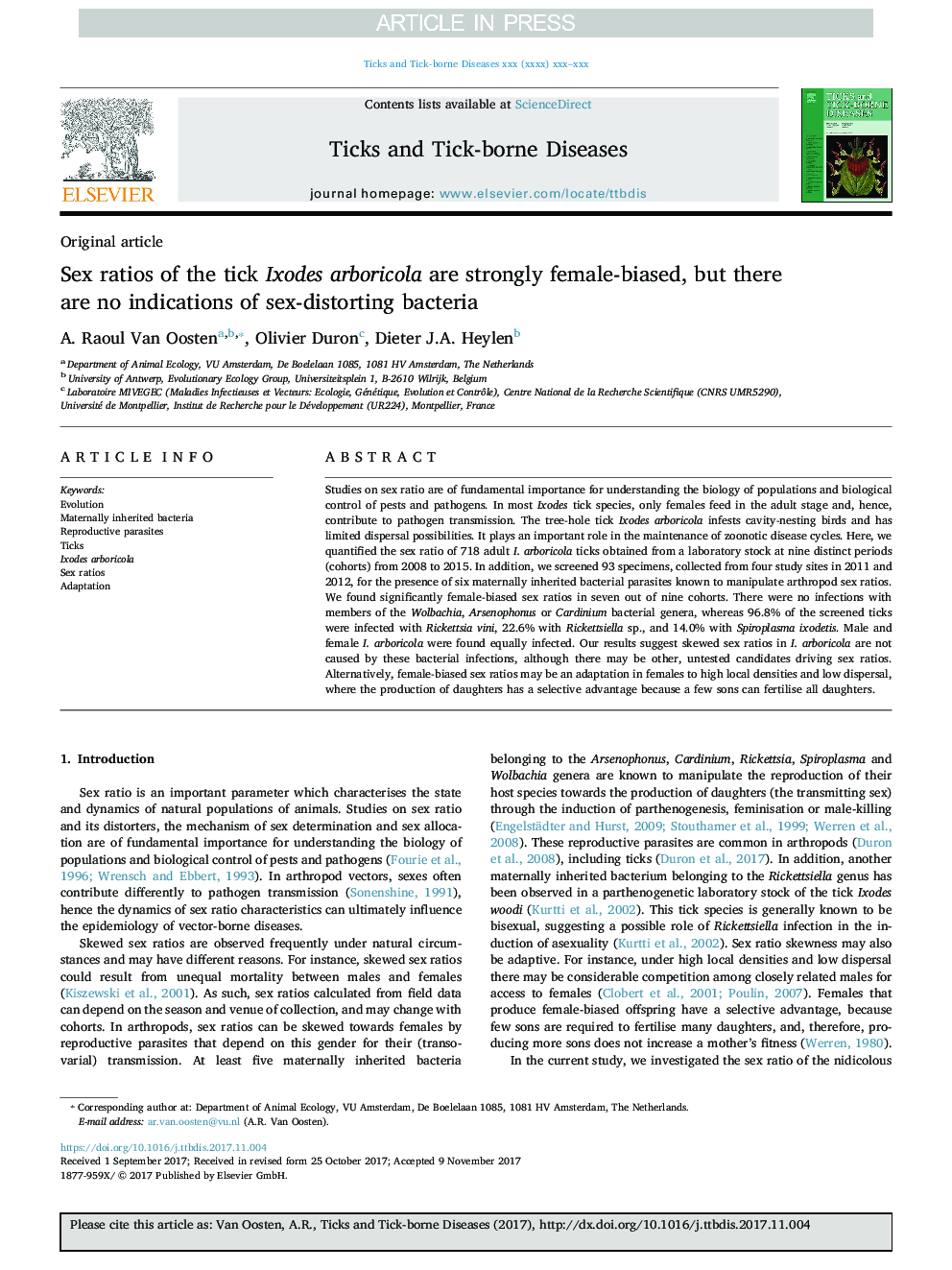| Article ID | Journal | Published Year | Pages | File Type |
|---|---|---|---|---|
| 8507494 | Ticks and Tick-borne Diseases | 2018 | 7 Pages |
Abstract
Studies on sex ratio are of fundamental importance for understanding the biology of populations and biological control of pests and pathogens. In most Ixodes tick species, only females feed in the adult stage and, hence, contribute to pathogen transmission. The tree-hole tick Ixodes arboricola infests cavity-nesting birds and has limited dispersal possibilities. It plays an important role in the maintenance of zoonotic disease cycles. Here, we quantified the sex ratio of 718 adult I. arboricola ticks obtained from a laboratory stock at nine distinct periods (cohorts) from 2008 to 2015. In addition, we screened 93 specimens, collected from four study sites in 2011 and 2012, for the presence of six maternally inherited bacterial parasites known to manipulate arthropod sex ratios. We found significantly female-biased sex ratios in seven out of nine cohorts. There were no infections with members of the Wolbachia, Arsenophonus or Cardinium bacterial genera, whereas 96.8% of the screened ticks were infected with Rickettsia vini, 22.6% with Rickettsiella sp., and 14.0% with Spiroplasma ixodetis. Male and female I. arboricola were found equally infected. Our results suggest skewed sex ratios in I. arboricola are not caused by these bacterial infections, although there may be other, untested candidates driving sex ratios. Alternatively, female-biased sex ratios may be an adaptation in females to high local densities and low dispersal, where the production of daughters has a selective advantage because a few sons can fertilise all daughters.
Related Topics
Life Sciences
Agricultural and Biological Sciences
Animal Science and Zoology
Authors
A. Raoul Van Oosten, Olivier Duron, Dieter J.A. Heylen,
